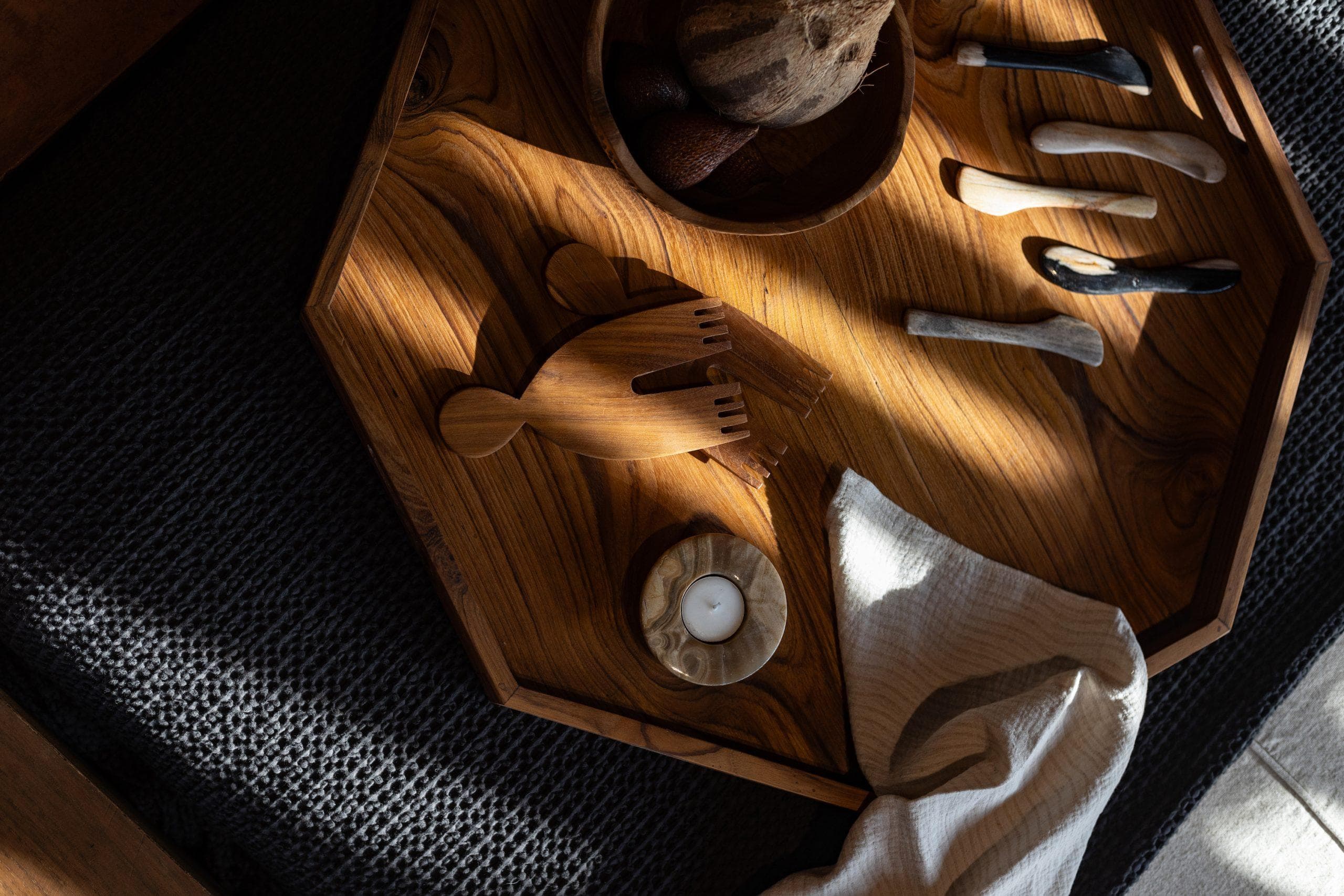Uniquely beautiful pieces of wood, introducing the Woodmata table
Since the 12th century, wooden decorations have adorned Indonesian temples and palaces. This ancient form of art is the source of inspiration for Allégra Folgado, who founded Woodmata in 2018. The entrepreneur, originally from the south of France, was "enchanted by the Indonesian way of life, by this life where everything is done gently and in harmony with nature."
Uniquely beautiful pieces of wood, introducing the Woodmata table
What was your journey leading up to the birth of Woodmata?
Allégra Folgado: My journey has been a bit unconventional! I initially enrolled in architecture school but left after a year and a half when I realized it wasn’t the right fit. My true passion lay in interior design. Afterward, I worked as a real estate agent for five years and then transitioned to selling printing equipment.
However, my love for travel has always been a constant, particularly my fascination with countries where craftsmanship is deeply cherished. I first visited Indonesia seven years ago and immediately fell in love with the country—the lifestyle, the warmth and friendliness of the people, and the rich culture.
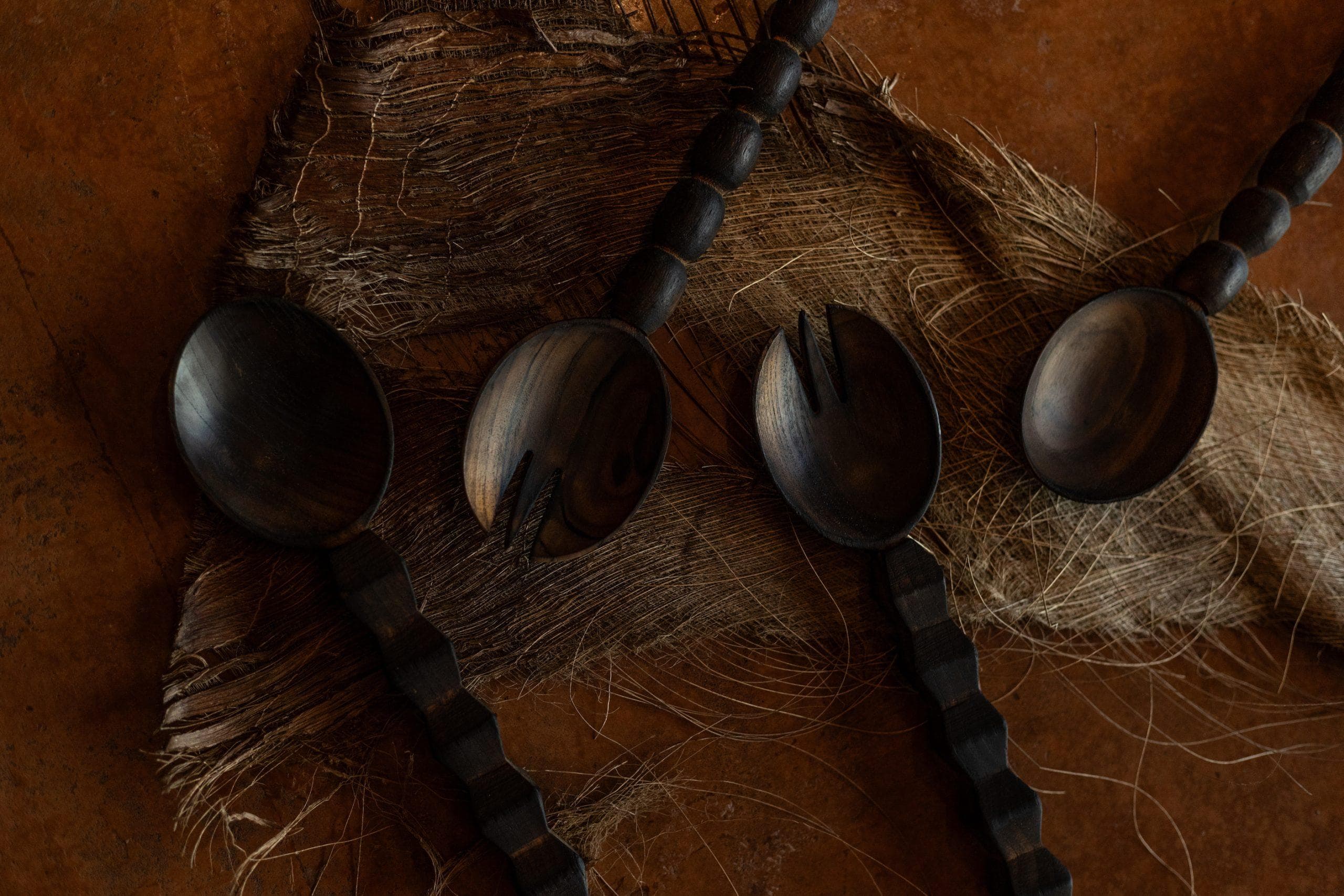
Woodmata burnt wood salad servers.
Was it during your first trip to Indonesia that you envisioned Woodmata?
Allégra Folgado: During my first trip, I brought back some wooden tableware in my luggage. It was common there, and I found it so beautiful, especially since we have so little of it in France. At that time, besides my regular work, I was also hosting shows on France 3 Corse Viastella, where I shared stories about my travels.
One day, a restaurant owner saw the photos I posted on Instagram of the tableware from Bali. He was captivated by the wooden bowls and reached out, wanting them for his restaurant. That's how the adventure began, leading to the creation of Woodmata. Today, our team has grown to six people working on it.
Are the designs you offer typical of what can be found in Indonesia?
Allégra Folgado: A round plate is still a round plate! You can find similar designs. But what sets our collections apart—whether they’re iconic or limited edition—are the unique designs I envision and, importantly, the quality.
In Indonesia, wooden dishes are sold on every street corner, but the quality varies greatly depending on the type of wood and the craftsmanship. It’s like a stock market for the best trees, especially teak. We ensure we source from the center of the tree, which yields the highest quality wood, and that’s what makes our pieces truly special.
What sets Woodmata apart is also the quality?
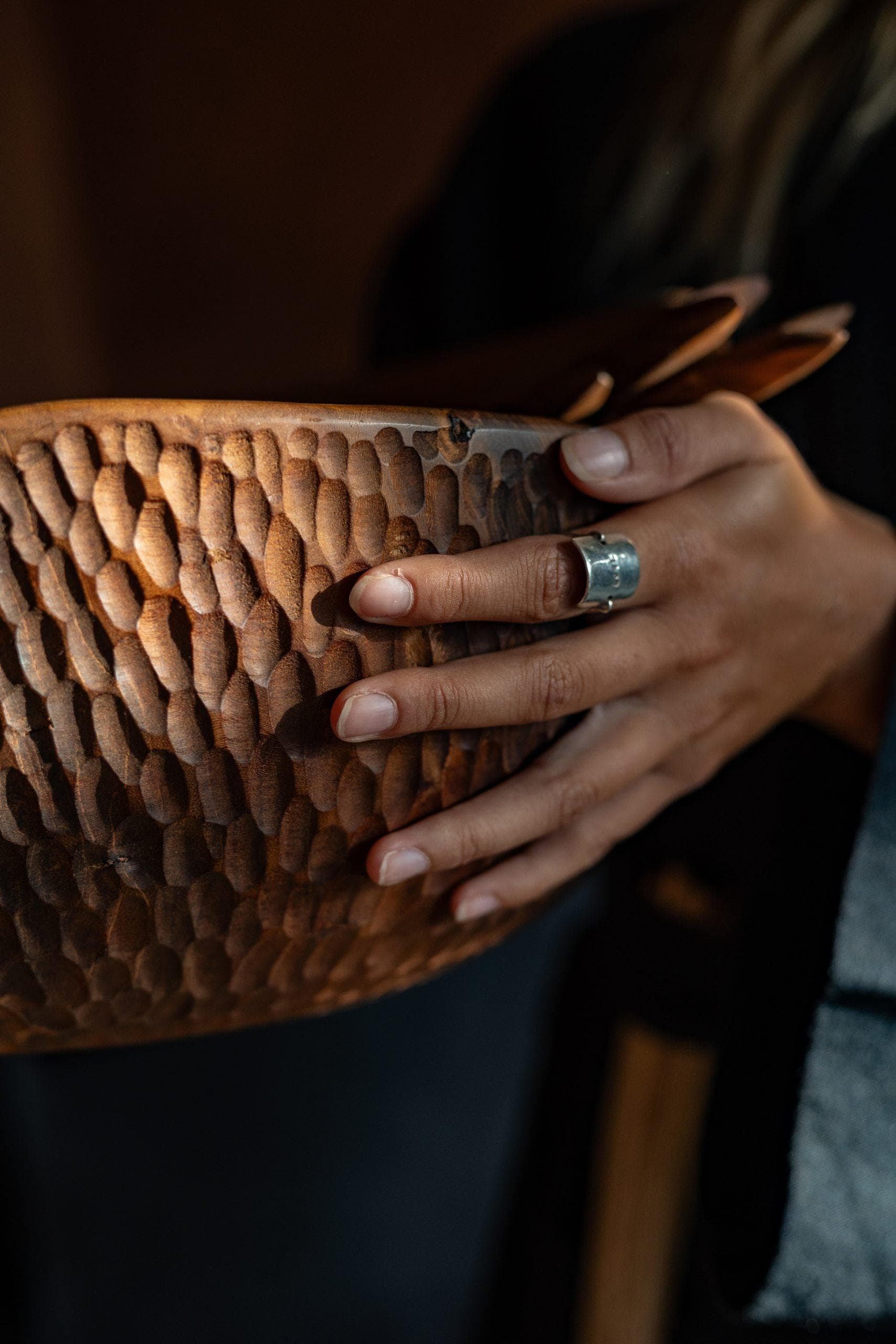
A unique hand-carved salad bowl. © Sarah Bakkas
Allégra Folgado: Absolutely! Many wooden pieces you’ll find in stores are made from mango wood in China, which is far inferior to teak in terms of quality. Teak is a noble and expensive wood, known for its durability, which is why it’s often used around swimming pools.
On the market, you’ll see many wooden boards made from mango or acacia wood, often laminated with glued pieces of wood, which can contain solvents. These boards are also frequently dyed to standardize the color. At Woodmata, our boards are different. They come with a food certificate, ensuring no varnishes or harmful products are used, and each board is crafted from a single piece of wood—no assembly or gluing involved.
Our burnt wood pieces, which achieve their distinctive dark color through controlled combustion, require a special technique to expose the wood to intense heat.
Where do you draw your inspiration to create new pieces?
Allégra Folgado: Inspiration can come from anywhere—a sofa, a lamp, or even a 70s chair by a French or Italian designer. Recently, I collaborated with the Cap Karoso hotel in Sumba, and during a walk on the beach, I was particularly inspired by seashells.
Their shapes influenced the design of some of the utensils, which mimic their curves. For the Karoso utensils, I also drew inspiration from the architecture and geometric shapes of Sumbanese houses and their iconic thatched roofs.
In what kind of interiors do Woodmata pieces fit?
Allégra Folgado: Everywhere! Today, everyone has a wooden cutting board, salad bowls... But I believe there’s something especially elegant and timeless about using beautifully crafted wooden utensils to present your dishes.
I still use the same pieces I brought back from Indonesia on my first trip. We also offer a collection of over 350 items specifically for hospitality and restaurant professionals. I’m always creating new pieces that can seamlessly fit into both modern interiors and country homes—there’s truly something for every style.
How many artisans do you work with on-site?
Allégra Folgado: I collaborate with eleven artisans, each specializing in their own area of expertise. One focuses on burnt wood, another on teak, and yet another on rustic teak. By keeping each artisan focused on their specific craft, I ensure that they can fully dedicate themselves to perfecting their work without being overwhelmed. This approach allows them to truly hone their skills and deliver the best quality possible.
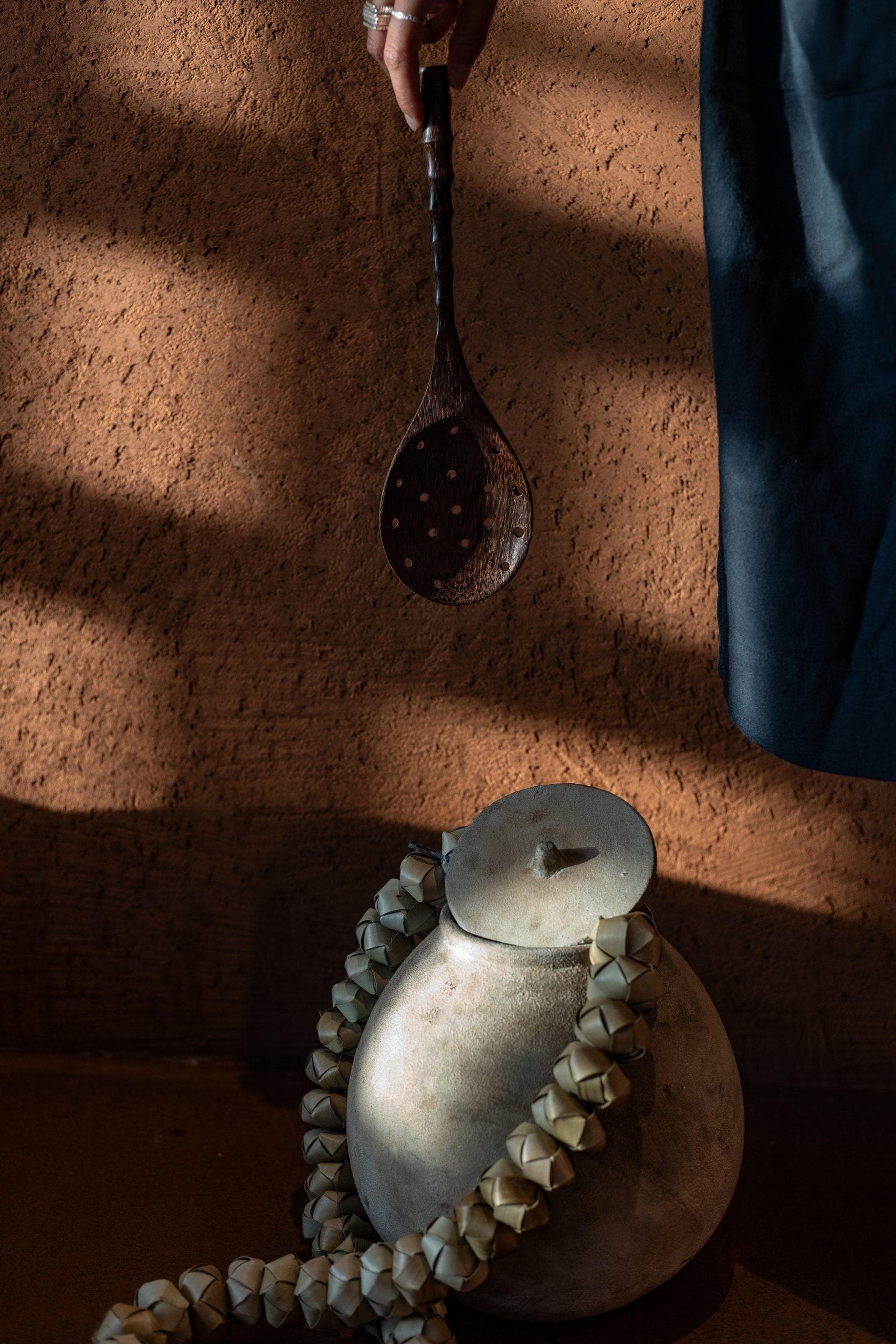
Tableware pieces that fit seamlessly everywhere. © Sarah Bakkas
You place great importance on good working conditions, fair compensation for the artisans you work with, and environmental preservation...
Allégra Folgado: I very rarely negotiate prices with the artisans I work with because I believe that if I make a profit, they also have the right to earn a fair wage. Additionally, child labor is strictly prohibited in Indonesia. For environmental preservation, we have an eco-label. For every tree cut down, another is replanted, and we try to recycle as much teak waste as possible.
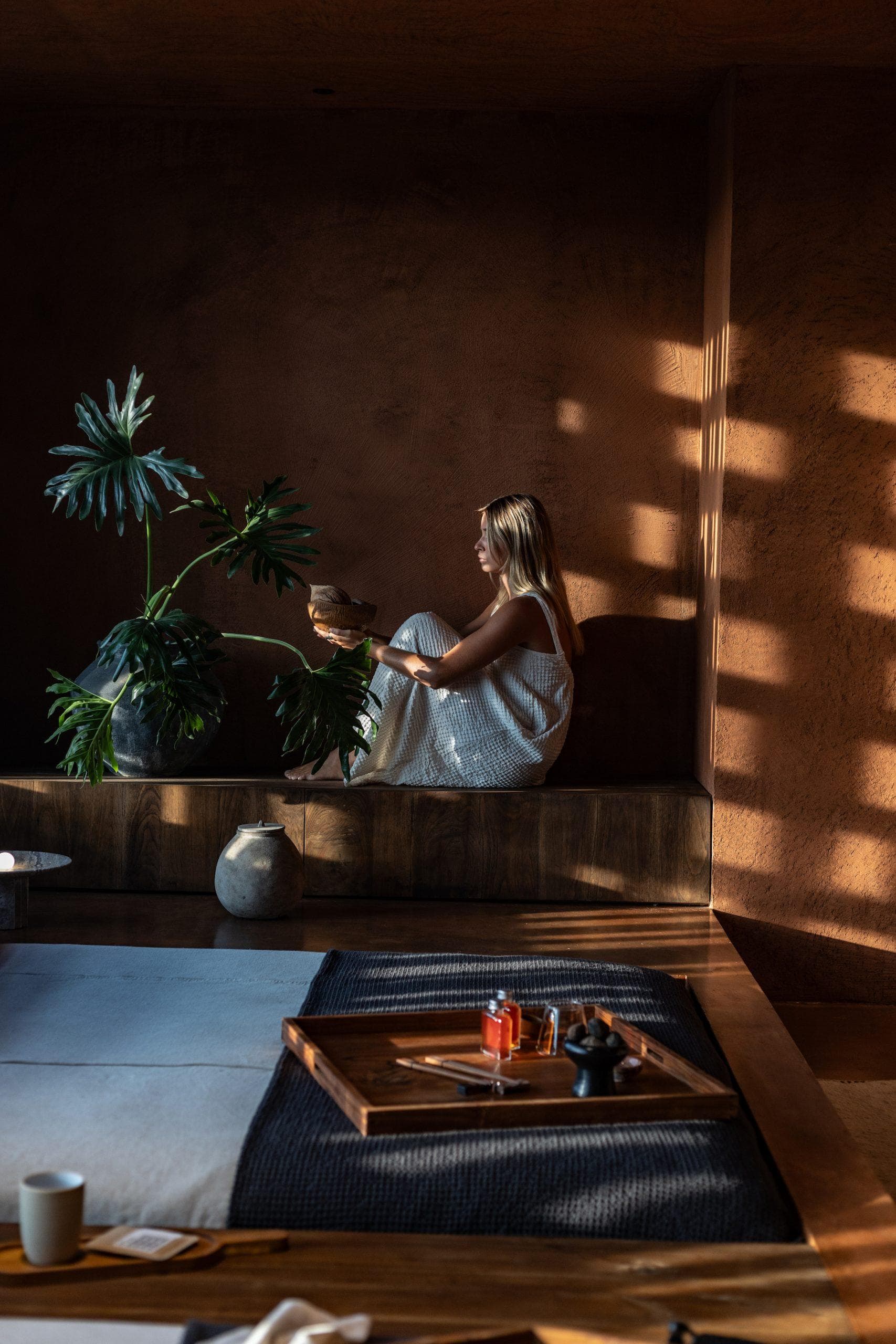
Wood pieces in harmony with both modern and traditional interiors.
Do you have a favorite Woodmata piece?
Allégra Folgado: My Karoso utensils! I love burnt wood; I think it adds a very chic touch.



